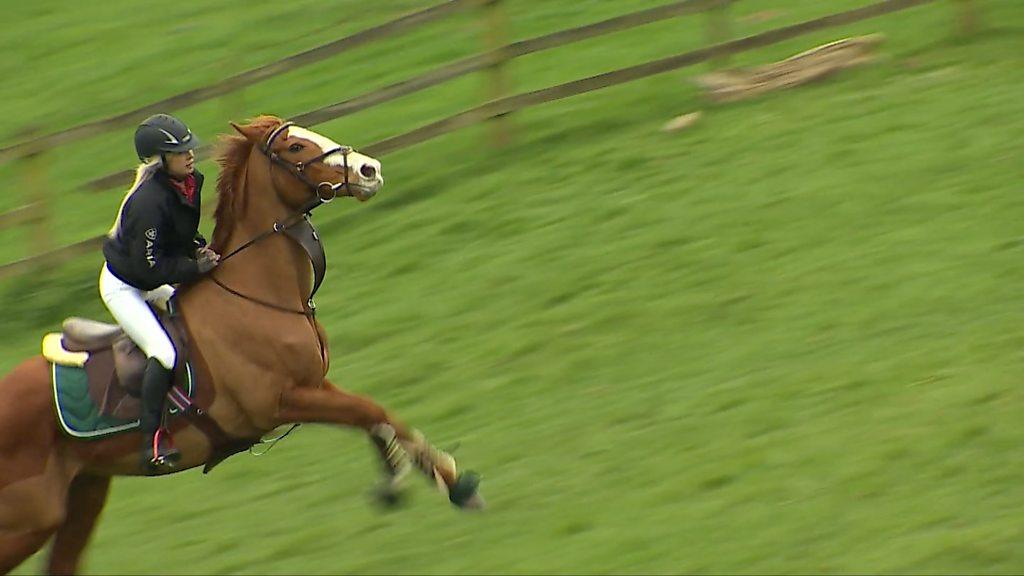Lincolnshire mum's plea for NHS cystic fibrosis drug to extend baby's life
- Published
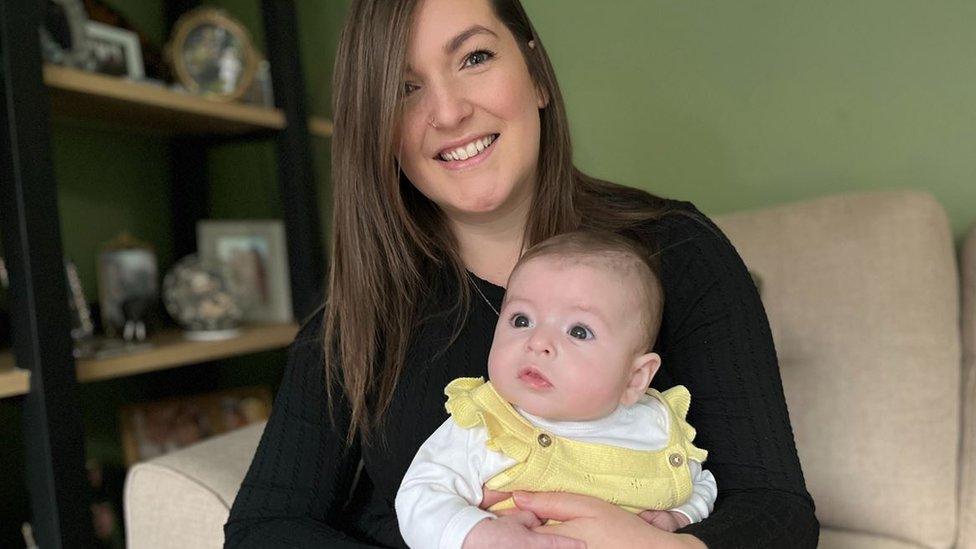
Nicolle has called for the medication Kaftrio, which could be used to treat her baby daughter Charlie, not to be withdrawn
The mother of a baby born with cystic fibrosis has urged the NHS not to withdraw a drug that she was told could extend her daughter's life by 40 years.
Nicolle, from North Lincolnshire, was told four-month-old Charlie could start taking Kaftrio when she turned two.
The National Institute for Health and Care Excellence (NICE) is now reviewing the "cost-effectiveness" of the drug.
Nicolle said if it was withdrawn Charlie would "struggle and potentially not make it into adulthood".
NICE has said patients already taking the medication would continue to have access to the treatment after it made a decision on whether the drug should continue to be available on the NHS.
Kaftrio is the brand name for ivacaftor, tezacaftor and elexacaftor combination therapy.
Nicolle said when she was told the medication might not be approved for new patients "every single ounce of hope that we had been given just got torn away in a second".
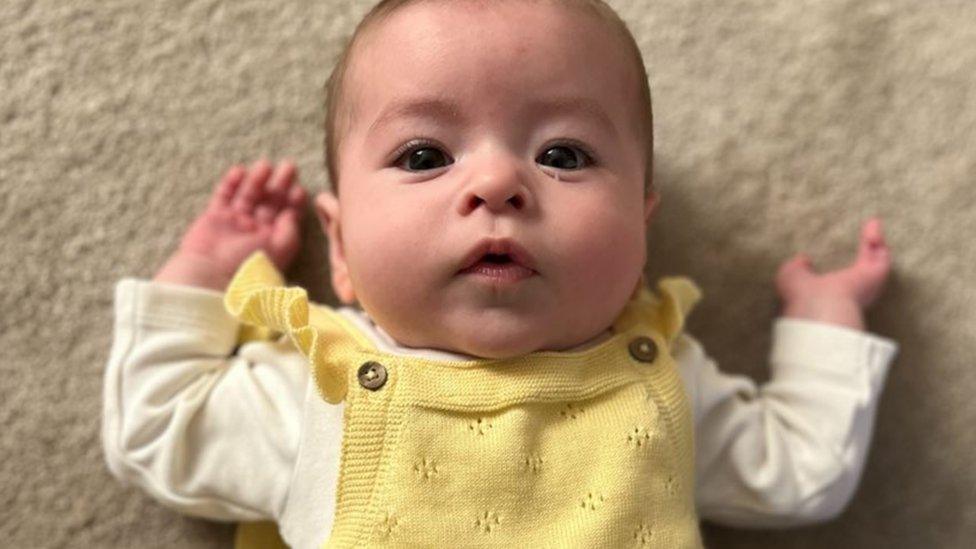
Four-month-old Charlie was diagnosed with cystic fibrosis after she was born
The family were told the type of cystic fibrosis Charlie had been diagnosed with meant she might not live into adulthood.
But doctors said being treated with Kaftrio could add decades to her life expectancy.
"That's huge, that's a difference in talking about what she wants to do with her life, if she wants to be a mum, if she wants to go to university, if she wants to travel," Nicolle said.
"Everyone deserves a chance."
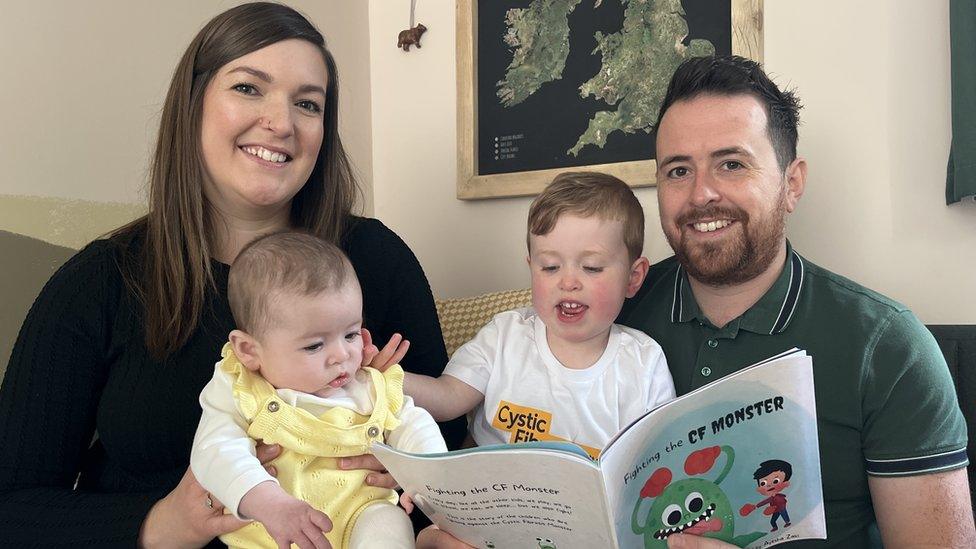
Nicolle and her family were told that medication Kaftrio could add 40 years to baby Charlie's life expectancy
Nicolle said she had always been in awe of people who were willing to put themselves or their families through experimental drug trials, but that she was now trying to get her baby accepted on a programme.
"Now I realise these people are not brave, they are just terrified and desperate. And that's where we are."
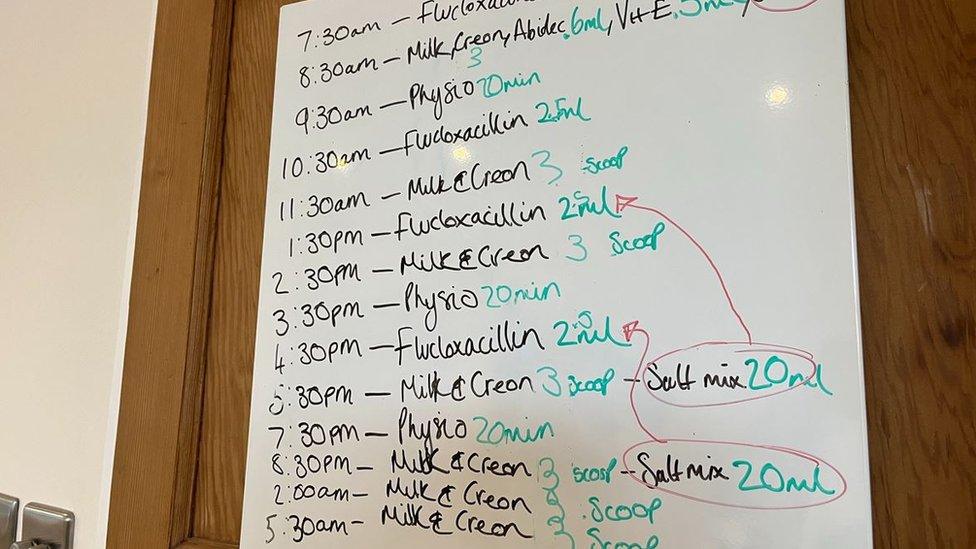
Charlie needs regular medication to treat an infection she has been suffering from as a result of cystic fibrosis
Helen Knight, director of medicines evaluation at NICE, said a consultation had been launched on the use of the drug.
It costs £8,346 for a packet of 56 tablets, according to the health body.
It means NHS treatment costs can amount to between £100,000 and £200,000 per year for each patient.
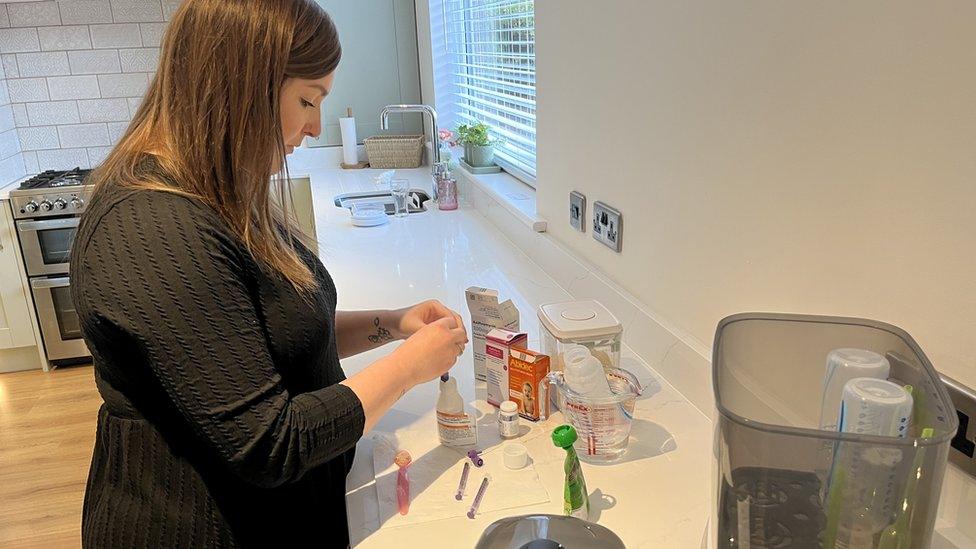
Nicolle said the family would not be able to afford to pay for the drug privately
"We are evaluating the cost-effectiveness of these cystic fibrosis medicines to ensure that taxpayers continue to get value for money after interim access where further data was collected," Ms Knight said.
"We are continuing to work collaboratively with the company, NHS England and other stakeholders, including the Cystic Fibrosis Trust, to deliver the best outcome both for people with cystic fibrosis and for the wider NHS."
NICE said a decision had not yet been made on the use of the drugs.

Follow BBC East Yorkshire and Lincolnshire on Facebook, external, X (formerly Twitter), external, and Instagram, external. Send your story ideas to yorkslincs.news@bbc.co.uk, external
Related topics
- Published18 June 2021
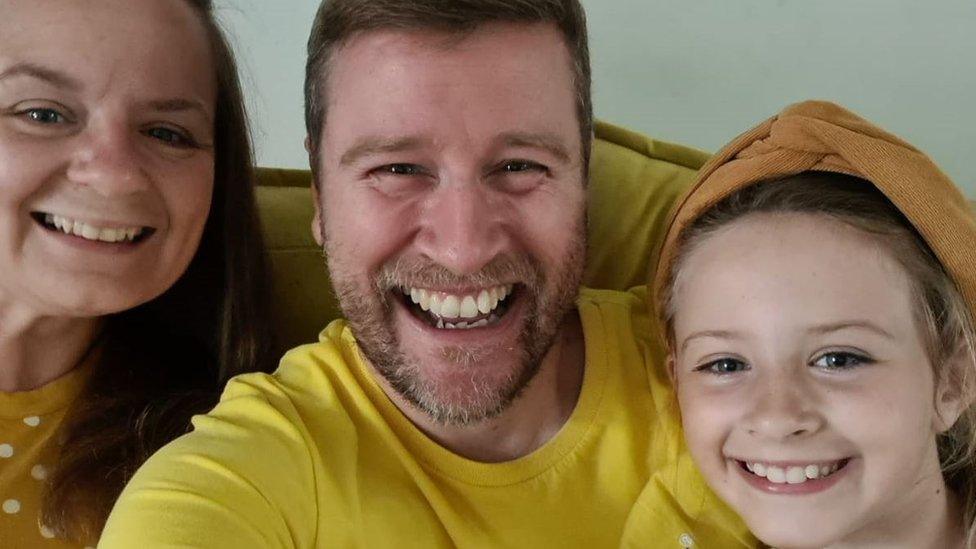
- Published10 November 2023
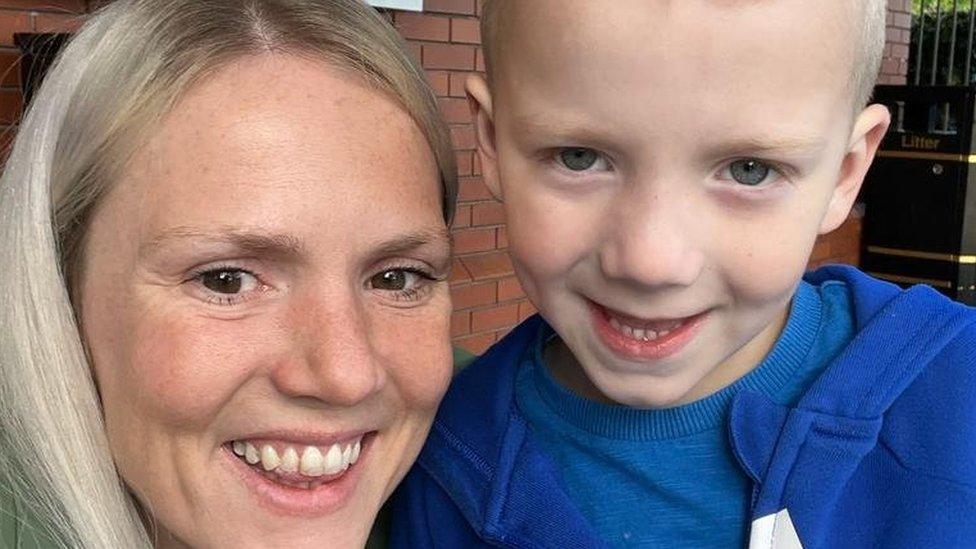
- Published19 April 2022
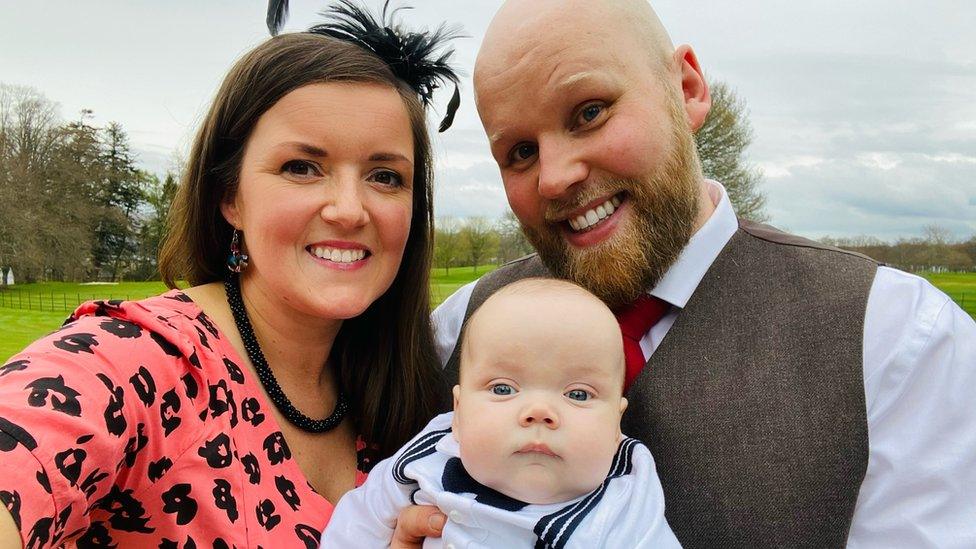
- Published7 April 2021
